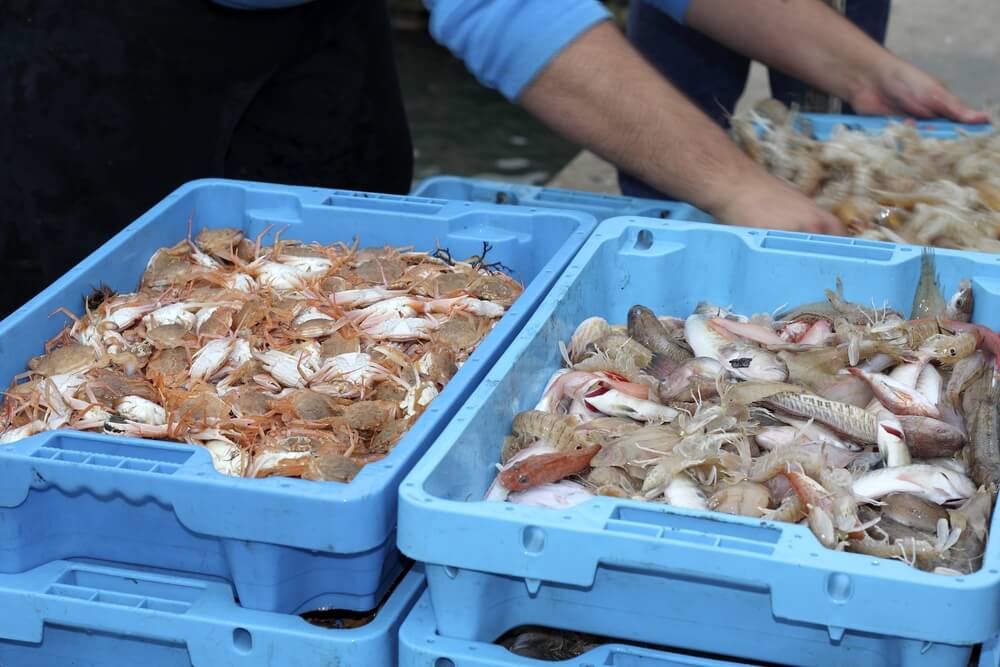For years researchers have documented the often inhuman and degrading treatment of workers in the global fishing industry. Far too many workers have reported being trapped in debt bondage, forced to work under extremely hazardous conditions, and physically abused, with some even describing murders of their fellow workers.
While some employers expose workers to these extreme abuses, many more cause harm in routine ways, failing to pay workers a living wage or meet even the basic standards outlined in the International Labour Organization’s Work in Fishing Convention. These unfair labour practices are widespread in the industry, and they pave the way for the cruel extremes.
Canada is a major and growing importer of fish and seafood, with imports valuing $4.6 billion in 2021, a 16 per cent increase over the previous year. The Canadian government acknowledges some of the harms caused by illegal, unreported and unregulated fishing at home and abroad, but has yet to adopt legislation to stop companies profiting from human rights abuse in their seafood supply chains.
Without comprehensive and fully enforced measures to target seafood produced using abusive practices, Canada feeds this global problem.
Last month, the Canadian government reaffirmed its commitment to introduce legislation “to eradicate forced labour from Canadian supply chains.” If done well, this legislation would require that Canadian companies exercise due diligence to prevent and remedy any human rights abuses they may cause or contribute to, including the right to a healthy and sustainable environment.
But this means taking rigorous action against foreseeable abuse not only in their own operations but also those of their suppliers.
Ensuring the protection of all human rights is particularly important because human rights, including labour rights, are indivisible and interdependent. We need to see the whole range of rights abuse as cause for concern, and seek to proactively protect all rights rather than wait to be outraged by the most disturbing experiences at sea.
Several European countries have adopted legislation that does exactly this by requiring corporate due diligence on human rights and environmental risks. The Canadian Network on Corporate Accountability worked with legal experts to develop a model for similar legislation in Canada, key elements of which are now before Parliament as Bill C-262, the Corporate Responsibility to Protect Human Rights Act. A critical component of the law is that it would ensureaccess to Canadian courts for victims who’ve been harmed overseas by Canadian corporate activity.
With a strong mandatory due diligence law in place, a Canadian company importing seafood would be required to take rigorous preventive and remedial action against abuse in their supply chains. This means pressuring their suppliers to stop both extreme abuses like forced labour and more common harmful practices like paying poverty wages, interfering with unionization efforts, or unsustainably exploiting the oceans to the detriment of workers and humanity at large.
Relying on customs authorities to seize imports produced with forced labour — as prescribed under Canadian law, but with little enforcement action seen to date — should be a last resort.
First, we need to make sure that companies aren’t creating the conditions that can lead to forced labour in the first place.
Canadian workers also have a role to play and Canadian unions will continue their global labour engagement, including through the International Labour Organization, to foster international solidarity, strengthen global labour standards and build collaboration on issues that impact workers worldwide.
Workers deserve ethical treatment and should not be in a position where they either suffer abuse or lose their job. The goal must be decent work, respect for all human rights and environmental sustainability.
As the government develops and tables its promised legislation, unions and other civil society organizations in Canada and abroad will be watching closely. It’s time to get this right and finally implement a law that supports fishery workers, and all workers, by putting an end to human rights abuses in supply chains.
Photo courtesy of DepositPhoto





